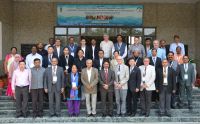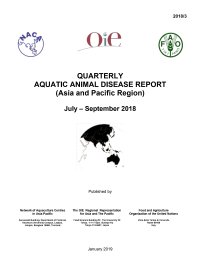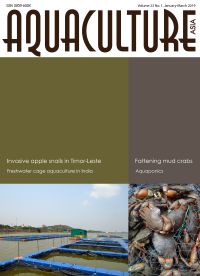The ICAR-NACA School on Aquatic Epidemiology and Disease Surveillance was held at the ICAR National Bureau of Fish Genetic Resources (NBFGR) from 1-6 March. The school was a collaboration between the Indian Council of Agricultural Research and NACA. The school covered:
- Concepts and principles of epidemiology.
- Use of epidemiological principles in design and implementation of surveillance programmes.
- Sampling considerations for surveillance programmes.
- Population surveys.
- Estimation of sensitivity and specificity of diagnostic tests.
- Questionnaire design.
A Regional Expert Consultation on Genetically Responsible Aquaculture was convened by the ICAR National Bureau of Fish Genetic Resources and NACA, from 26-27 February. The immediate objective of the consultation was to discuss mechanisms for establishing quality seed production systems to improve hatchery and on-farm genetic diversity. A long-range objective is to establish networks of registered broodstock holdings. Linked via IT systems, such networks will form a virtual global aquaculture gene pool that can, collectively, sustain high genetic diversity and adaptive capacity, while checking inbreeding depression.
The ICAR-National Bureau of Fish Genetic Resources, Lucknow, India is conducting a School on Aquatic Animal Epidemiology and Disease Surveillance from 1-6 March, 2019. Five seats are available in the school for researchers from NACA member countries (outside of India) on first-come first-served basis. Participants should be nominated by research centres participating in NACA or by member governments. Accommodation, hospitality and meals will be provided for the duration of the training. Travel grants are not available. Please apply / express interest by 13 February 2019.
In this issue:
Current status of freshwater cage aquaculture in India; Fattening of mud crab Scylla serrata in estuarine region of south-eastern West Bengal; Aquaponics - sustainable farming method in the fight against hunger; aquatic invasive apple snails (Pomacea spp.) in Timore-Leste - current status, spread and management in rice fields; NACA Newsletter.


